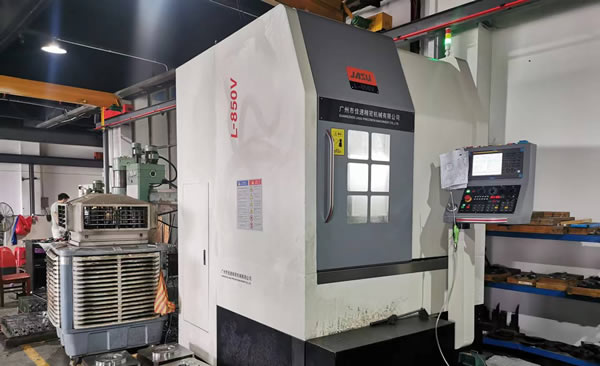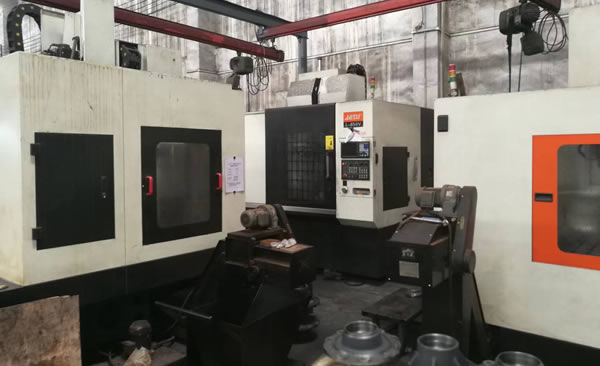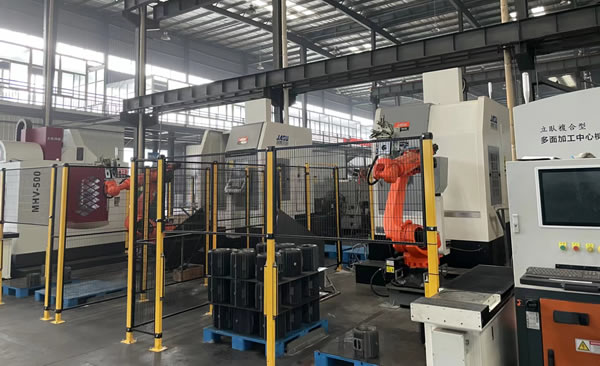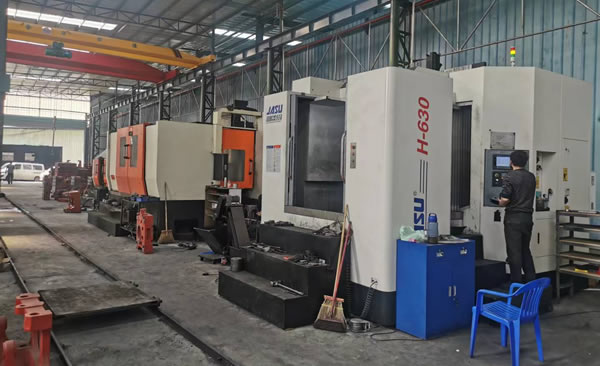A production line revolution of "unmanned factory" has been opened vigorously.
"In 2000, a factory in Foshan hired a glue sprayer with a monthly salary of 500 yuan. 14 years later, it was difficult to hire workers even with 3000 yuan." On the 18th, at the Foshan Emerging Industry Development Forum, Zhang Tie, Vice Dean of the School of Mechanical and Automotive Engineering of South China University of Technology, started with the background of the "machine generation" boom in Pearl River Delta cities - the critical point of demographic dividend faced by China's manufacturing industry.
Not long ago, Wu Jie from Sichuan came to Foshan, and under the guidance of the factory master, he began to get used to dealing with the "newcomer" on the production line - the tireless and tireless industrial robot.
In the past two years, the industrial robot, a strategic emerging industry, is the most eye-catching landscape in Foshan's industrial growth. Under the joint promotion of Midea, Galanz, Dongpeng, Wrigley and other industry leaders, Foshan's robot industry has become wider and wider, even realizing the expansion from Foshan to other cities.
With the accelerated pace of technological innovation and integration of artificial intelligence, digital manufacturing and mobile Internet, the robot industry is regarded as a key link for Foshan to maintain its industrial global competitiveness, which will create new advantages for Foshan to lead the development of the West Bank of the Pearl River. Therefore, it must become the protagonist in the dream of Foshan's trillion scale equipment manufacturing industry.
The injection of "industrial robot dividend"
In the new round of competition, the Yangtze River Delta is more competitive in terms of urban environment and wages, and more attractive to the new generation of production workers. Can the release of "industrial robot dividend" achieve the new competitiveness of manufacturing cities?
Wu Jie chose to go south to Foshan and become one of the millions of workers from Sichuan to Guangdong.
"Come out and see the world. The world here is more colorful." My sister's salary in Foshan six years ago is still different from that in Sichuan. As time goes on, the salary for the same position in Chengdu is not much different from that in Foshan.
Due to the rising labor costs, many leading enterprises in Foshan have turned their attention to "replacing people with machines". Midea has taken "robot replacement" as a long-term strategy. It is an important part of Midea's transformation in recent years to reduce staff and increase efficiency through various means such as "automation, intelligence and fewer people". By 2015, Midea will invest more than 1 billion yuan in "robot replacement".
One of the main directions for the development of Foshan's advanced equipment manufacturing industry is to develop the intelligent manufacturing industry.
In the wave of transformation and upgrading of the manufacturing industry, a number of "new stars" of enterprises engaged in robot research and development and production have emerged in the city, such as Aleppo, Li Xunda, Jiateng, Dingfeng, which mainly produce a series of products, such as unmanned carrier vehicles (AGV), injection molding part robots, intelligent stamping robots, water cutting machines and red punching robots, which are widely used in ceramics, mechanical equipment, metal material processing, logistics and distribution and other industries. Individual enterprises have rapidly grown into "invisible champions" in the subdivided industry. For example, Li Xunda has become the leader of polishing and polishing robots, and the intelligent handling robots developed by Jiateng are in the forefront of the industry.
With the impact of the global economic crisis, the consumption downturn, industry surplus, the disappearance of the demographic dividend, the competitive advantages of the central and western regions and developing countries have emerged, and the market of household appliances, furniture, ceramics and other products in Foshan has encountered an unprecedented severe situation. Therefore, Huo Jintian, chairman of Li Xunda, is very optimistic about the development prospects of domestic robots.
"Since last year, through the use and transformation of the logarithmic controlled cutting equipment, our factory has achieved the goal of reducing personnel and increasing efficiency. The number of personnel has decreased from more than 300 to more than 100, while the production efficiency has increased by 20%." A ceramic enterprise in Foshan proposed to achieve 70% automation productivity by 2015 in the transformation of production process automation.
In some high voltage welding lines of air conditioning production, operators need to take out the evaporator from 39 ℃ high temperature drying furnace and walk for 2 to 3 meters before moving it to the high voltage welding line for vertical placement. Midea Group (19.85, 0.29, 1.48%) introduced robots for this purpose. "This seemingly simple action requires workers to bend and turn 3600 times a day, and the operating environment is unbearable at high temperature, which has led to the high loss rate of this post." According to the relevant person in charge of Midea, after introducing robots to work in this link, the work of the entire assembly line was smooth. Midea Group invested RMB 750 million in the intelligent manufacturing improvement project in 2013, which improved the overall efficiency by more than 23% and saved more than 30000 employees. It is estimated that in 2013, due to the improvement of automation, the direct labor cost of Midea Household Air Conditioning Division decreased by more than 8 million yuan, and the enterprise realized the growth of employee benefits, which became the guarantee of stable labor force in the factory under the situation of labor return.
Can the release of "industrial robot dividend" achieve the new competitiveness of manufacturing cities?
Professor Zhang Tie, School of Mechanical and Automotive Engineering, South China University of Technology, said that intelligent industrial robots can replace some monotonous, frequent and repetitive operations in long time or dangerous and harsh environments in industrial production, reduce human labor intensity, reduce labor risks, improve enterprise production efficiency and competitiveness, and have become the most important platform for industrial capacity upgrading. In fact, the use of industrial robots has brought significant benefits to enterprises.
Outward expansion after successful practice
Foshan's huge industrial cluster has a certain universality in the demand for robots. Robotic enterprises have made successful models by cooperating with leading enterprises in research and development, implementing automation transformation, and then the way of automated production can be popularized in the industry at once.
"In the past, we relied on the advantages of being adjacent to Hong Kong, Macao and Taiwan, borrowed machinery that others did not have to produce, and took the lead. Now the world is flat, and the dividend of industrial robots is not only available to Foshan, but also actively promoted by governments in other places." Huang Zhihai, secretary-general of Foshan Technological Innovation Association, said that, because the equipment manufacturing industry is an industrial machine and the cornerstone of the manufacturing industry, to become a "golden egg", Foshan manufacturing should first require mechanical equipment to become a "golden chicken", and cultivate a robot industry that can help promote the upgrading of local traditional manufacturing, which must be an important part of the trillion scale equipment manufacturing industry in Foshan.
Foshan is developing and implementing the intelligent transformation plan of 100 enterprises, encouraging manufacturing enterprises to carry out intelligent transformation, promoting the automation of production processes, gradually realizing "replacing people with machines, and replacing assembly lines with automation", supporting traditional manufacturing enterprises to purchase equipment, solutions or integrated services provided by local robot enterprises, and increasing the market share of local industrial robot industry to 30%, The density of robots (number of robots used per 10000 employees) has reached more than 50.
Since the application has just started, how to cooperate with robot suppliers and how to determine the enterprise automation transformation scheme in the long run are also new topics. Cai Yucai, director of Shunde District Internet of Things Information Technology Engineering Center, believes that, "Robot manufacturers are selling 'robots+people'. Because different household appliance production lines have different problems to solve and different financial capabilities to purchase solutions, home appliance manufacturers and robot suppliers often need to work together to complete the plan of 'replacing people with machines'. Robot manufacturers such as Li Xunda employ' people 'who are new technicians who understand NC technology programming and debugging."
In the field of industrial robots, the upstream is the core component, mainly the reducer and control system, which is equivalent to the brain of the robot. The midstream is the body of the robot, which is the body of the robot. The downstream is the system integrator. 95% of domestic enterprises focus on this link. Foshan robot industry lacks core technology. Most enterprises are downstream system integrators and earn little profit.
"At present, most Foshan robot enterprises do integrated applications, which is related to Foshan's own industry and belongs to the downstream of the industrial chain. However, this is also of great significance." Qin Lei, vice premier of Xinpeng Robotics and member of Guangdong Robotics Technical Committee, said that Foshan's huge industrial cluster has a certain versatility in the demand for robots. Robotics enterprises have made successful models by cooperating with leading enterprises in research and development, implementing automation transformation, and then the automated production mode can be popularized in the industry all of a sudden. "Cooperation with leading enterprises has a high success rate and relatively low risk."
Joint Venture Application Company Jointly Constructed by Strong and Strong Parties
The leading project represented by Kuka will bring a large number of downstream robot system integrators, form the basis for the development of the industrial chain of robots and intelligent equipment in Shunde, and establish Shunde's important market position in intelligent equipment.
"The body of machine tools can be made in many places. The 'brain' system is the most valuable part of a set of intelligent numerical control equipment. Unfortunately, in the robot industry, most of the core technologies are monopolized by foreign enterprises." Huang Zhihai mentioned.
The Pearl River Delta region has a strong supporting capacity of technology and equipment for industrialization, but it has not got rid of the imitation and innovation model of technology introduction, relies heavily on advanced technologies at home and abroad, and lacks independent intellectual property rights and core technologies. Some experts revealed that the profit margin of mechanical equipment manufacturing enterprises in the Pearl River Delta is very thin, which may be less than 10%.
"The standardization of the product platform should also be emphasized. Only the standardization of the production line can realize scale and automation." An insider of Midea said so.
On the production line of a manufacturing factory in Germany, more than 90 processes are needed to complete the production, and a Chinese factory has innovated to achieve more than 60 processes to produce products. However, the qualified rate of products on the production line in Germany reached 98%, while the qualified rate of this factory in China was less than 70%. "Germany has rich experience in advanced manufacturing industry, and has a deep research on the processing process. It decomposes the production line into scientific and reasonable modules, and scientifically establishes various mathematical models. Only on this basis can we achieve automation and intelligence can we achieve real results. Made in China, do not just mention the goal and task of" replacing people with machines "transformation and upgrading. It is important to strengthen more research and research on industrial production Step by step. " An insider in Foshan machinery and equipment industry said that the service-oriented module construction of manufacturing industry will create a large space for productive service industry.
With the comprehensive promotion of intelligent and information-based equipment manufacturing, Foshan will focus on breaking through major industrial technology bottlenecks such as key components, electromechanical integration chips, and system intelligent control software by cultivating mechanical equipment research institutes. In the city's dream that the total scale of machinery and equipment manufacturing industry exceeds one trillion yuan, emerging manufacturing industries such as environmental protection equipment manufacturing, general aviation manufacturing, intelligent equipment and robots will achieve a total output value of 100 billion yuan in seven years.
The transformation projects of "equipment replacement" and "production line and production system" in Guangdong Province have identified seven provincial intelligent manufacturing demonstration bases. The core area of Foshan National High tech Industrial Development Zone and the western start-up area of Shunde High tech Industrial Development Zone have been selected successfully, becoming one of the strategic new industrial bases jointly built by the provinces and cities.
All kinds of "big moves" have attracted the attention of international intelligent manufacturing giants. Kuka Robotics (Shanghai) Co., Ltd. has chosen the Western Start up Zone of Shunde High tech Industrial Development Zone to build its first R&D base in China.
"Shunde should focus on the construction of Guangdong intelligent manufacturing industry base and Shunlian international machinery and equipment trading market, promote Midea Group to cooperate with Germany KUKA, and jointly build an industrial robot application joint venture company with capital as the link and industrial robot assembly and service as the core." Foshan Economic and Information Bureau said.
Related Articles
Related Products

...
Product Details

...
Product Details

...
Product Details

...
Product Details